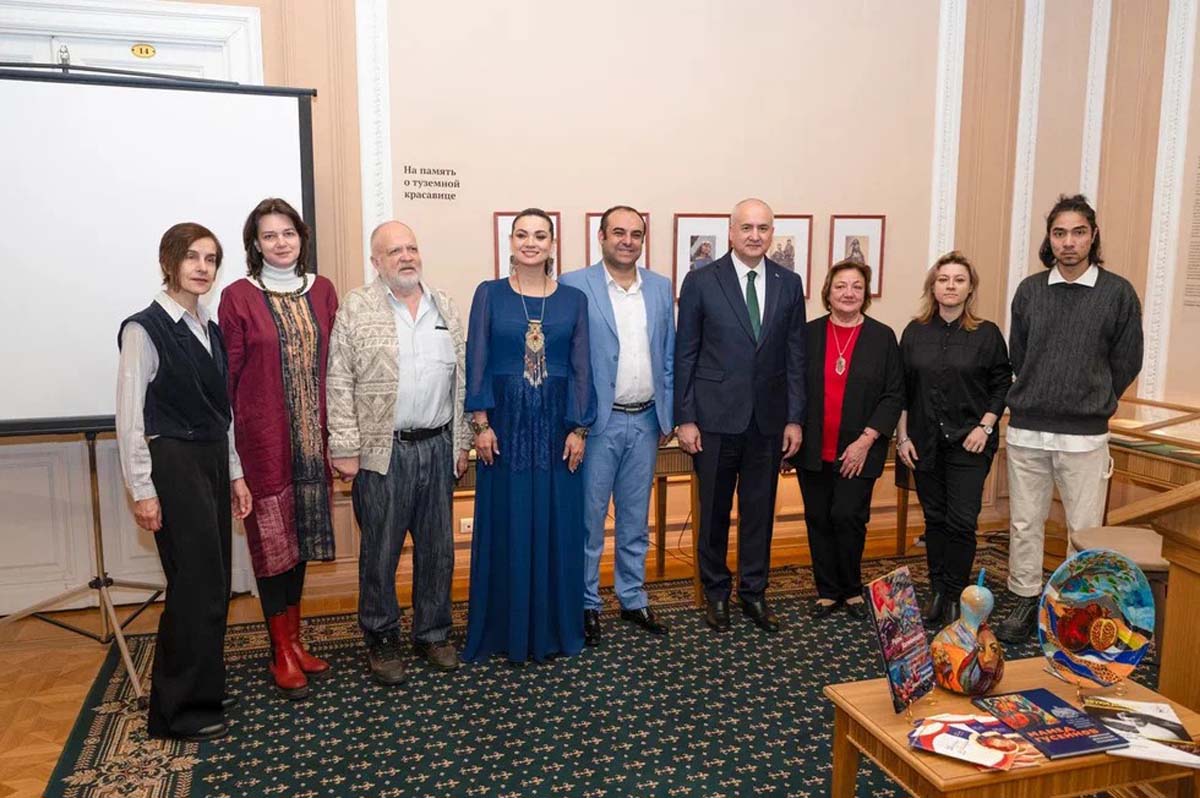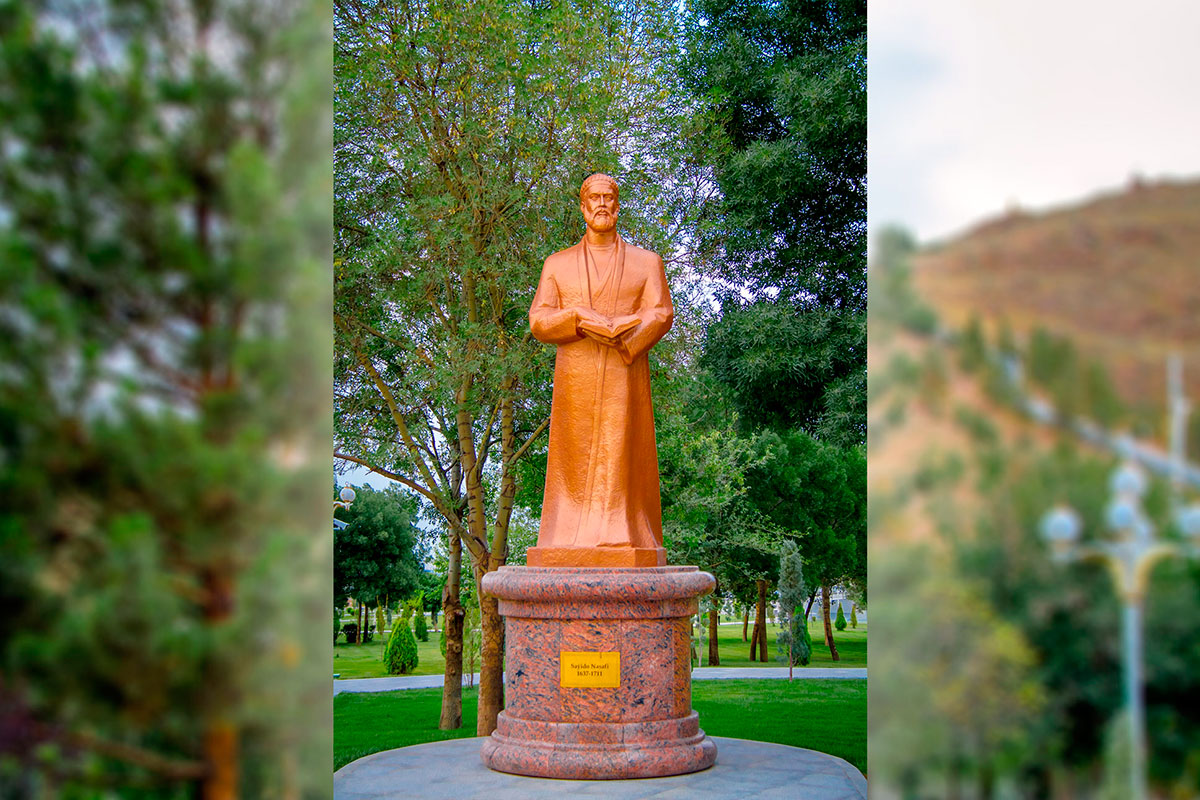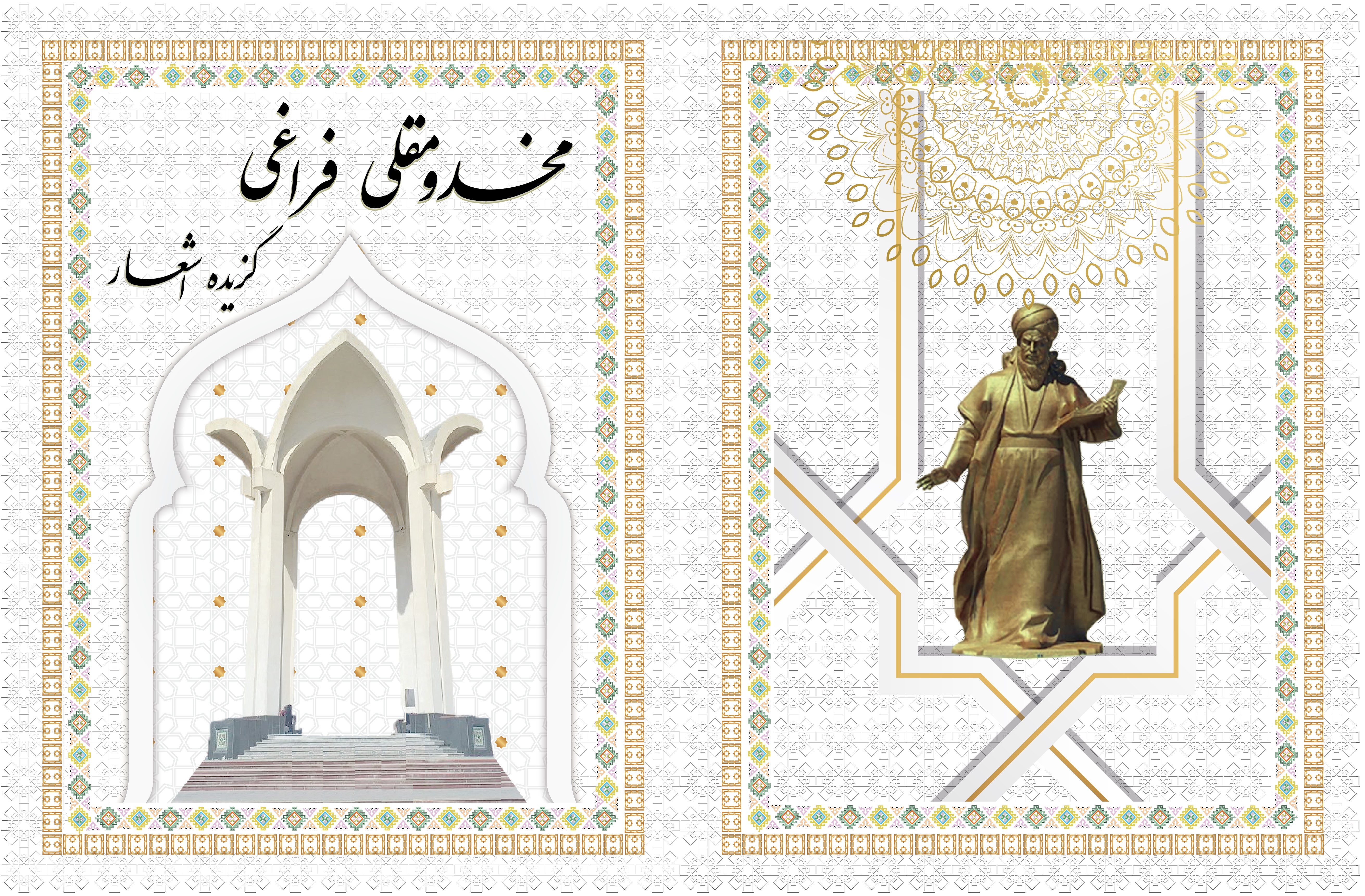This year, in a solemn ceremony to commemorate the 300th anniversary of the birth of the classic of Turkmen literature Magtymguly Fragi and in his honor in the foothills of Kopetdag there was a new cultural and park complex of the capital was opened.
It is symbolic that this large-scale object, in addition to the majestic monument to Magtymguly, includes an alley of famous poets and thinkers of different countries and eras, which emphasizes it meaning in the context of friendship of peoples and cultural unity heritage of humanity.
There are 24 monuments installed on the territory of the park complex world-famous writers and poets from around the world. The editors of the "Golden Age" considered it correct, according to opportunities, to introduce the reader, especially children and adolescence, with the life and work of outstanding personalities whose monuments decorate Magtymguly Alley.
This is also important because some of the geniuses presented here of our time, visited Turkmenistan. "GA", publishing information about them does not in any way pretend to be complete coverage materials about this or that person, especially since many of them after a large amount of time, not many of them have survived so much information.
Our short story today is about the great Malay poet, writer and historiographer Raja Ali Khaj.
Raja Ali Haji was born in Selangor (in some sources it is stated that he was born in Penyengat) in 1808 or 1809. He is a representative of the Bugis people, a distant descendant of the Sultan Selangor.
He received his first education in Penyengat, where he spent his childhood. In many respects his passion for grammar and literary he owes his activities to his father, Engku Khaja. Several of it early shairs (shair is a genre in Malay and Indonesian literature. A chanting poem) he wrote in co-authored with his father.
Raja Ali Haji is the compiler of the first national grammar of the Malay language and the first explanatory dictionary Malay language.
Raja Ali Haji, along with grammar, passionately studied and history of the Malays. His pen includes historical works “The Origin of the Malays and Bugs”, “The Priceless Gift”, and poem "Shair Abdul Muluk", a collection of didactic couplets "Gurindhams in 12 sections".
The following works occupy a prominent place in his work
- “The Responsibilities of a King”, “The Fruits of Labor” and “The Book linguistics".
Raja Ali Haji died in 1873.
For the services he rendered to his country, valuable works, which he left to future generations, as well as his enormous contribution to the development of science by many universities, cultural historical institutions, mosques, sports complexes and streets in Malaysia are named after him. In 2004 he was awarded title of national hero of Indonesia.








